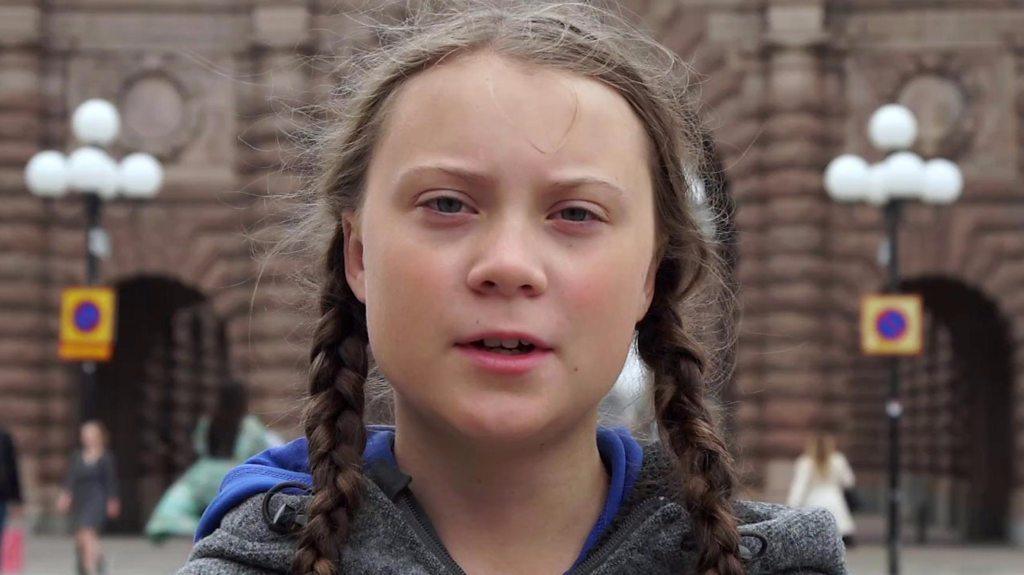'I skip school to demand climate change action'
- Published
'I'm standing up for our planet'
A planned protest on Friday will see schoolchildren across the UK walk out of their lessons to demand action over climate change. We have been to meet some of the teenagers looking to take control of their futures.
Every Friday morning, 13-year-old Holly Gillibrand, from Fort William, skips school for an hour.
She says the "sacrifice", as she describes it, is "a small price to pay for standing up for our planet".
"If you get a detention, that's nothing to how we will suffer in future if nothing is done," she tells the BBC's Victoria Derbyshire programme.
"I want to get Scottish leaders to take climate change seriously and [know] that they're destroying my future."
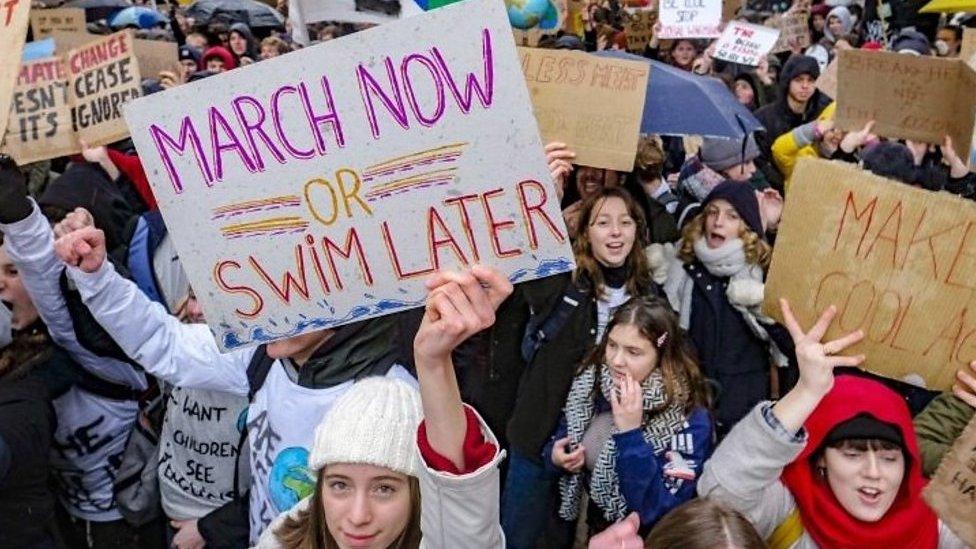
Thousands of students have been skipping school in Belgium to demand action
Holly is part of a much wider global movement, known as Schools 4 Climate Action.
It began with 15-year-old Swede Greta Thunberg skipping class to sit outside government buildings in September, accusing her country of not following the Paris Climate Agreement.
Since then, tens of thousands of children across Belgium, Germany, Sweden, Switzerland and Australia have been inspired to hold their own demonstrations.
And now for the first time a coordinated protest is happening across the UK, with pupils taking to the streets in more than 30 cities and towns.
For Holly, it is just an extension of her weekly protest - which began six weeks ago.
She and a small group of supporters, including other local pupils, carry placards with slogans such as "School strike for the climate," "End the ignorance," and "There is no planet B," outside her secondary school, at the foot of Ben Nevis.
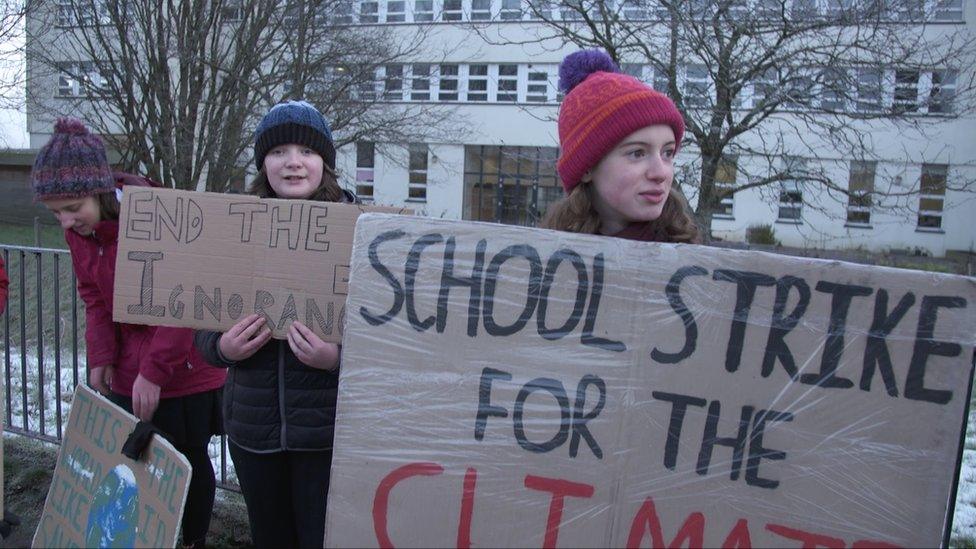
The government says it is for individual schools to decide what to do about pupils walking out on Friday but stresses that term-time leave should be given in exceptional circumstances only.
Lessons are compulsory, but Holly insists skipping class is a necessary step.
"The very point about missing school is that it makes people realise it's important and we're willing to sacrifice an hour of education a week," she says.
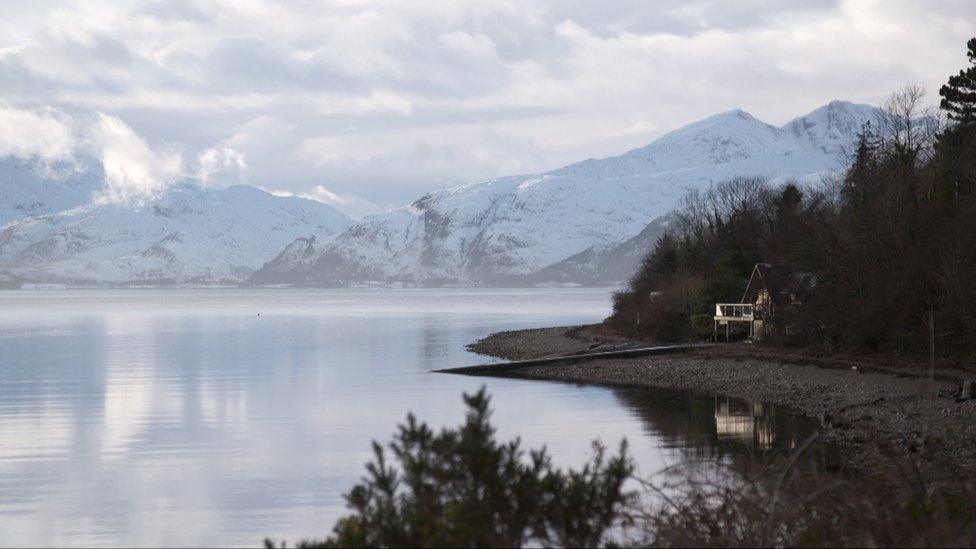
Holly lives in the Scottish Highlands
Her mother, Kate Willis, denies any suggestion the campaign could be promoting truancy.
"What they're doing at the moment shows they are educated and aware," she says.
"It's going to get to the stage [with the repercussions of climate change] where education doesn't matter."
Repeated warnings
Scientists have issued repeated warnings that rising global temperatures risk significant and dangerous changes to our world and that urgent, large-scale action from governments is required.
A special report from the Intergovernmental Panel on Climate Change (IPCC), external last year said the target of keeping the global temperature rise under 1.5C was now completely off track, and heading instead towards 3C - but that the window of opportunity remained open.
In Lancaster, Rosie Mills successfully campaigned to get her local council to declare a "climate emergency", after gathering more than 1,000 signatures for her petition - all while studying for her A-levels.
It means under-18s will now be part of the decision-making process in dealing with climate change, looking at ways for the city to eventually produce no carbon at all.
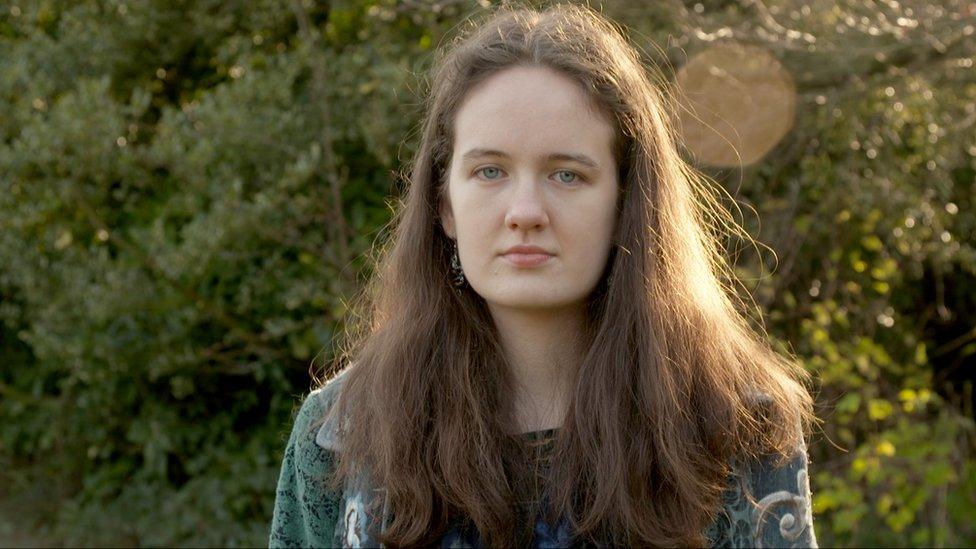
Rosie is worried about the impact climate change will have on her local area
"This is our future we're talking about," she says. "We can all do something, because small things do add up."
Local environmental concerns are a priority, Rosie says, following severe flooding in the region in recent years.
"I'm worried about many things, especially in my local area, because Lancaster is a coastal area," she says.
"Three years ago, we had an awful storm, Storm Desmond, which absolutely devastated the area.
"There was mass flooding all around and it was repeated again two years later, in 2017."
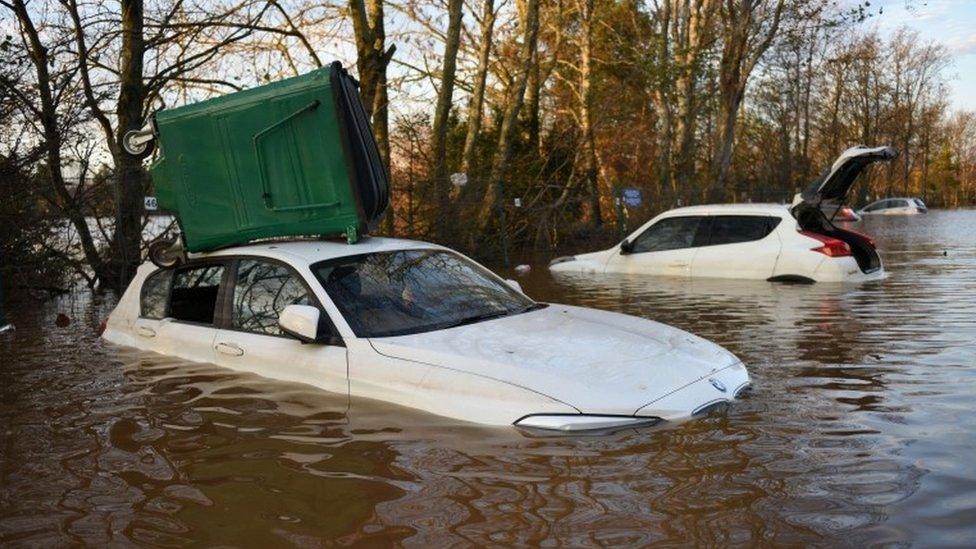
Thousands of homes in Lancashire and Cumbria were flooded by Storm Desmond in 2015
Rosie tries to live a sustainable lifestyle and wants to encourage others to do the same.
But for Holly, it should never have reached the point where children have to consider missing part of their education to take a stand.
"Thousands of students around the world shouldn't have to strike off school to make our voices heard," she says.
"Our world shouldn't have to have conservation, because our planet should be being respected and preserved."

Follow the BBC's Victoria Derbyshire programme on Facebook, external and Twitter, external - and see more of our stories here.
- Published31 January 2019

- Published7 September 2018
